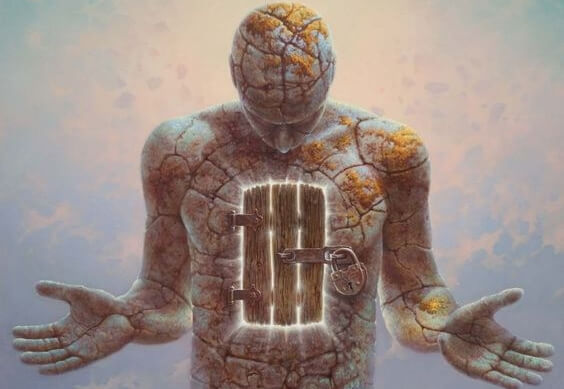The Insufferable Need to Always Be Right

There are people whose minds are dead set on “I am right and you are wrong.” They are profiled as ones with big egos and very little empathy, specialists in continually raising disputes, capable craftsman in destabilizing harmony in every way.
Being right is something we all find satisfying, we can’t deny that. It reinforces our self-esteem. But most of us understand that there are limits, we know that it is vital to develop constructive attitudes, a humble outlook, and an empathetic heart capable of appreciating and respecting the views of others.
“A belief is something you cling to because you think it is truth.”
-Deepak Chopra
However, one of the greatest wrongs among mankind is the insufferable need to always be right. “My truth is the only truth and yours is not worth anything,” flies throughout the heads of many people, and even of some organizations, political groups, or countries that like to sell us their ideologies like moralizing pamphlets.
Instead of seeing this as something isolated or anecdotal, we should be conscious that it is something serious. Because one who obsesses over always being right ends up suffering two ruthless side effects: isolation and the loss of health. We should be capable of connecting with others, of being sensible, respectful, and able to create harmonious surroundings when the need arises.

Two Men in a Boat: the History of Blindness, Fear, and Pride
Thich Nhat Hanh, also known as “Thay” (a teacher in Vietnam) is a zen teacher, a poet, and an activist for peace. He has published more than 100 books and was nominated for a Nobel Peace Prize by Martin Luther King.
Among the many stories told by Thay, there is one that gives us a good example of the need for humans to be right. The story begins during a morning in the region of Vietnam. It was the 1960’s and war had spread throughout the once peaceful, serene land that was marked by the routines of the people.
There was a day when two fisherman were navigating upstream when suddenly, they spotted a boat coming towards them from downstream. One of the elderly men tried to row to the edge thinking that it was an enemy boat. The other elderly man started to yell in a loud voice raising his paddle thinking that it was unwary and unexperienced fisherman.
The two fisherman began arguing with each other like small children in a school yard, until a few moments later, the boat that was going down stream hit them at full force launching them into the water. The two elderly men held onto pieces of floating wood and discovered that the other boat was empty. Neither of them was right. The real enemy was their own minds, two stubborn minds and eyes that could no longer see with the visual acuity of the old days.

Our Beliefs are our Possession
People are true machines of beliefs. We internalize them and program them into our minds so that we can repeat over and over again like a litany, until they become like a piece of property, an object that must be fiercely defended. In fact, our ego is a varied mosaic with unwavering beliefs, those for which we will most likely lose friends just as long as we are right.
“You cut and style your hair, but you always forget to cut your ego.”
-Albert Einstein
On the other hand, it is beneficial to remember that we all have the right to have our own opinions, our own truths, and our predilections, those that we have discovered over time that identify and define us. However, caution is needed, because none of these aspects should “kidnap” us to the point that we throw ourselves into the dungeon of “my truth is the only truth that counts.”
There are those who live completely immersed in an internal dialogue, who repeat that their thoughts are better, over and over again like a mantra, whose perspectives are unchangeable, and their truths are a light of invaluable wisdom. Thinking this way plunges them into spending their lives looking for people and situations who will validate their beliefs, and the “truths” of this limited atomic world where nothing should be questioned.
The consequences of living with this type of mental focus tend to be serious and almost irreparable.

The Desperate Need to Always be Right and its Consequences
The world is not black and white. Life and people find their beauty and expression in diversity and different thoughts, in their distinct perspectives, and always being receptive to learning, growing, and moving ahead.
“The most beautiful gift we can give another person is our attention.”
-Thich Nhat Hanh
Just sticking to our own opinions and the imposition of a universal truth is going contrary to the essence of humanity, and even to our exercise of free will. It is not lawful, logical, nor healthy. James C. Coyne, author, psychologist, and emeritus professor of the School of Psychology at the University of Pennsylvania affirms that the need to always be right is a modern evil capable of affecting our physical and emotional health.
According to a study at the University of Bradford (United Kingdom), close to 60% of people with this type of profile suffer ulcers, high levels of stress, and dysfunctional family relationships. Furthermore, as if that were not enough, they are people who alter the harmony of their surroundings everywhere they go.

In conclusion, something we all know is that our day to day is a flow where varied and complex currents crisscross. We are all in our own boat, either going upstream or downstream. Instead of insisting on always going in the same direction, we should learn to look up so that we do not wreck into one another.
Allow people to pass, lets create a sea of minds capable of connecting with each other, to flow freely and in harmony. In the end, we are all searching for the same destiny, which is none other than happiness. Therefore, let us build it with a foundation of respect, empathy, and a true feeling of coexistence.
This text is provided for informational purposes only and does not replace consultation with a professional. If in doubt, consult your specialist.








